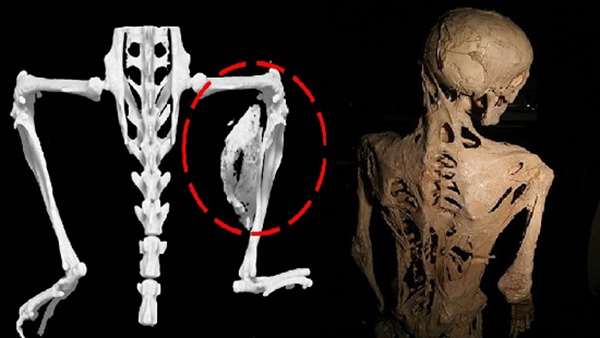First-ever trial of drug using iPS cells to begin at Kyoto University
Kyoto University researchers are set to begin the world’s first clinical trial of a drug identified using iPS cells to treat a rare bone disease, the university said Tuesday.
Kyoto University researchers are set to begin the world’s first clinical trial of a drug identified using iPS cells to treat a rare bone disease, the university said Tuesday.
A team led by Junya Toguchida, a professor at the university, used induced pluripotent stem cells to develop a potential drug for fibrodysplasia ossificans progressiva (FOP), a rare disorder in which muscle tissue is gradually replaced by bone, inhibiting body movement.
The researchers created iPS cells from FOP patients and replicated the symptom outside their bodies. After adding components to the cells with features of the disease, they found that — out of 6,800 substances — an immune-suppressive agent called Rapamycin was effective for preventing abnormal bone formation.
The drug’s safety and effectiveness need to be tested in a clinical trial, which could begin as early as September, on 20 patients aged 6 or older. A review committee at Kyoto University Hospital has already approved the trial.
The team has confirmed the effectiveness of Rapamycin in experiments with mice. Researchers gave the agent to mice after transplanting FOP patients’ iPS cells into them, and found that the drug inhibited abnormal bone formation.
“Rapamycin is a drug already used (for treatment of other diseases) so I expect patients will happily accept it” in the clinical trial, Toguchida said at a news conference in Kyoto crowded with dozens of reporters and several television cameras — reflecting the strong interest in the clinical trial.
“It’s taken us a long time to get here,” Toguchida said, adding that there are currently around 80 FOP patients in Japan.
He said many of the patients have studied their symptoms and have a scientific understanding of the disorder. Makoto Ikeya, an associate professor and a member of the team, said he hoped the new trial will give FOP patients hope.
Shinya Yamanaka, professor at Kyoto University and a 2012 Nobel Prize winner in medicine for discovering iPS cells, said, “I hope the clinical trial will spur active research for drug development, and eventually lead to the discoveries of new treatment for various rare diseases.”
FOP is caused by a mutation of the ACVR1 gene. Bones are formed in muscles, tendons and ligaments, hindering the movements of joints.
Any type of human body tissue can be formed using iPS cells. They are expected to be utilized for drug development as well as regenerative medicine.





ارسال به دوستان